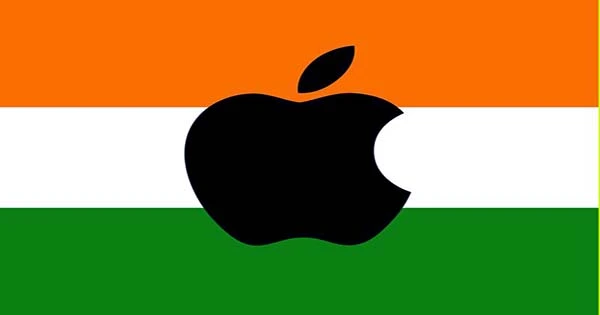In India, where Apple has less than 2% of the smartphone market, the Indian antitrust authority requested a probe into Apple’s business practices, including the company’s requirement that iPhone software developers utilize a proprietary payment mechanism. The Competition Commission of India ordered the Director-General to complete the investigation within 60 days. Stated that the mandatory use of Apple’s in-app payments system for paid apps and in-app purchases “restrict[s] the choice available to app developers to select a payment processing system of their choice, especially when it charges a commission of up to 30% for app purchases and in-app purchases.”
Following a complaint made by Together We Fight Society, a non-profit headquartered in Rajasthan, India’s western state; the watchdog began investigating the matter. According to the group, Apple’s decision, which forbids app developers from utilizing a third party or their own payment system, has a major impact on their earnings. Apple had requested that the CCI dismiss the case, claiming that it was a minor participant in India.
India is the latest country to voice its displeasure with Apple and Google’s requirement that app developers utilize the company’s payment system for in-app purchases. (Last year, an Indian watchdog launched a probe into Google’s business practices.) South Korea passed legislation earlier this year making it unlawful for Apple and Google to gain money by forcing developers to use their proprietary payment systems.
Epic Games boldly challenged Google and Apple in the United States by implementing its own payment mechanism in the sleeper smash game Fortnite. It is now embroiled in legal wranglings with Google and Apple. Attorneys general from 36 states launched an antitrust complaint against Google this year, arguing that the company’s Google Play app store constitutes a monopoly.
A bipartisan measure filed in the US Senate this year aims to limit how the Apple and Google app stores work, as well as the limitations that may be imposed on app creators. Last year, the European Union introduced the Digital Markets Act, which aims to prohibit technology platforms from abusing their role as gatekeepers.
“At this time, it appears that the lack of competitive constraint in the distribution of mobile apps is likely to affect the terms on which Apple provides app developer’s access to its App Store, including commission rates and terms that prevent certain app developers from using other in-app payment systems,” the CCI wrote in a 20-page order on Friday.
According to the CCI, it is also worth investigating if Apple exploits data gathered from rivals’ consumers to “enhance its own services.” Despite a significant increase in iPhone sales in recent years, Apple remains a minor participant in the Indian market. Android, developed by Google, has a market share that fluctuates between 98 and 99 percent each year.
















